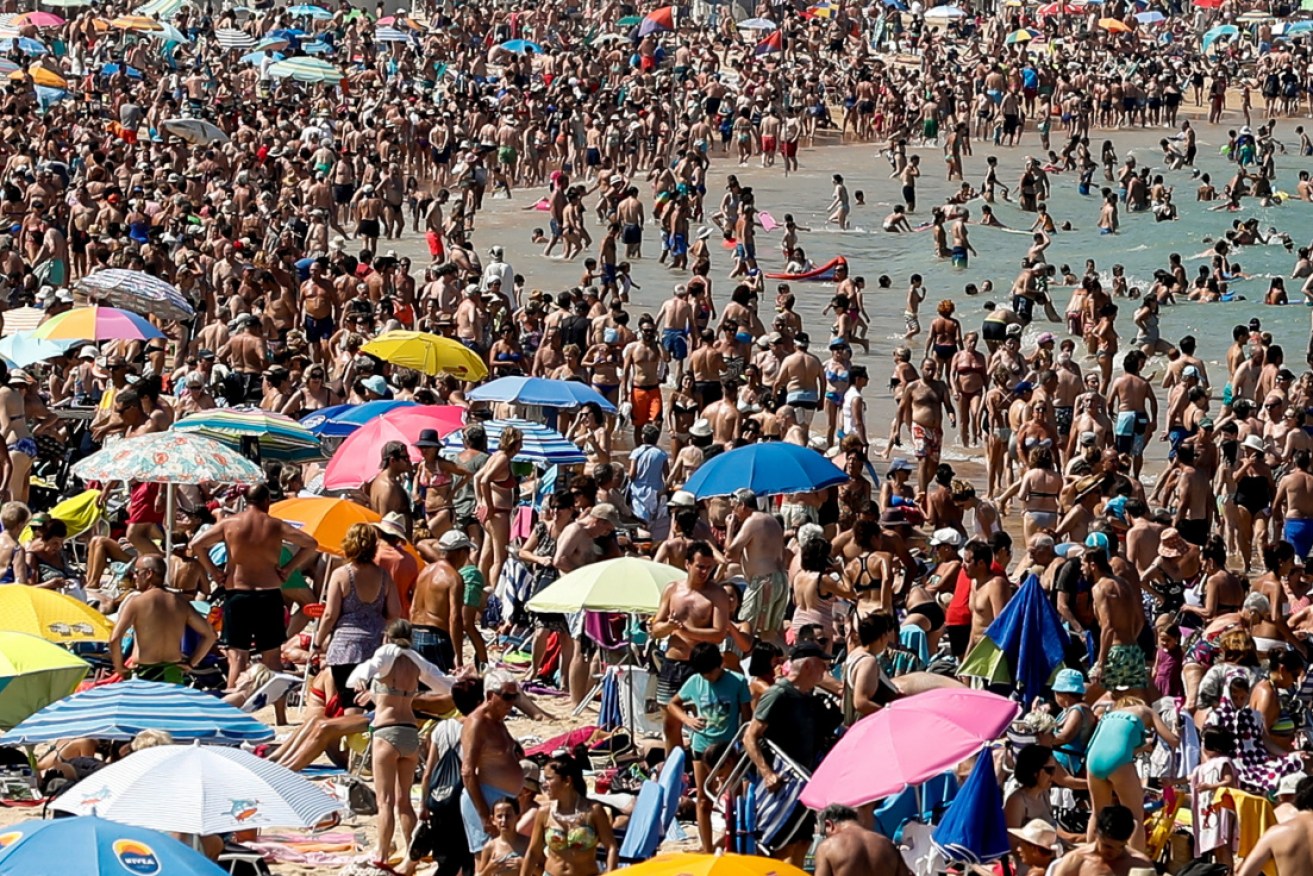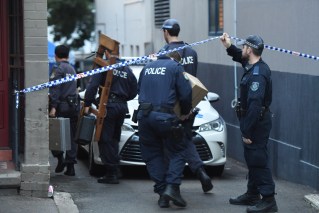European Union unveils guidelines to save tourism sector with summer holidays

We're unlikely to repeat this August 2018 image of San Sebastian’s La Concha beach, but the EU wants to help tourism. Photo: AAP
The European Union is pushing for a safe reopening of borders, while insisting on protective measures such as masks on planes, to try to salvage the ravaged tourism sector for the lucrative summer season as coronavirus infections recede.
Museums, beaches and plazas have been empty under an almost continent-wide travel halt from mid-March that has destroyed jobs, pulverised the airline and hospitality sectors, and undermined Europe’s cherished principle of free movement.
Though wary of new waves of COVID-19, the EU executive wants to revive what it can of travel for the June to August season usually worth 150 billion euros ($251 billion).
Its proposals are non-binding and most European governments were pressing ahead with their own specific plans, at different speeds, depending on national circumstances.
Some were also heavily promoting more domestic tourism.
We are helping European tourism get back on track while staying healthy and safe.
🎦 Join us live for the press conference on resuming travel and rebooting Europe's tourism with @vestager and @ThierryBreton https://t.co/bp5ziV8AVm
— European Commission (@EU_Commission) May 13, 2020
To try to rein in the chaos, the European Commission on Wednesday urged a return to “unrestricted free movement” – if the health situation allows.
“Domestic and intra-EU tourism will prevail in the short term,” the commission said, as travel from outside the bloc for non-essential trips such as holidays is likely to remain disrupted for longer.
Airlines and airports must insist passengers wear masks, limit contamination risks and reorganise check-ins, drop-offs and luggage pick-ups to avoid crowds, the EU proposals say.
There is no need to leave the middle seat empty on planes, another measure that has been discussed.
Social distancing will be necessary on cruise ships, trains and other public transport, according to the draft.
“Our thoughts are now, I think, turning toward summer and maybe even further, and to the places that we love to travel,” said Margrethe Vestager, one of the commission’s several deputy heads, in presenting the proposals.
“That means taking gradual, careful steps to help travel restart in line with what science tells us … We need to carefully reopen borders within Europe.”
The executive also wants vouchers for cancelled flights or holidays to be valid for at least a year, with protection against bankruptcies so people will accept them instead of demanding refunds from cash-strapped airlines and travel firms.
Already, the three Baltic states have decided to reopen borders to each others’ citizens from May 15, creating a “travel bubble” within the EU.
Austria and Germany also plan to fully reopen their border on June 15. That will particularly help Austria’s tourism industry, which relies heavily on German visitors to the Alps and elsewhere.
Austria and Germany introduced lockdowns early in their outbreaks and have fared relatively well, with lower death rates than many European peers. Both have been loosening their lockdowns, letting shops and other gathering places reopen.
Elsewhere, there is still great caution.
Tourism-dependent Spain and others are moving towards imposing a two-week quarantine period for travellers arriving from abroad, even as they ease strict lockdowns.
Within the “Schengen” area, where borders are usually invisible between 26 EU and other European countries, at least 17 nations have emergency border controls.
-AAP







